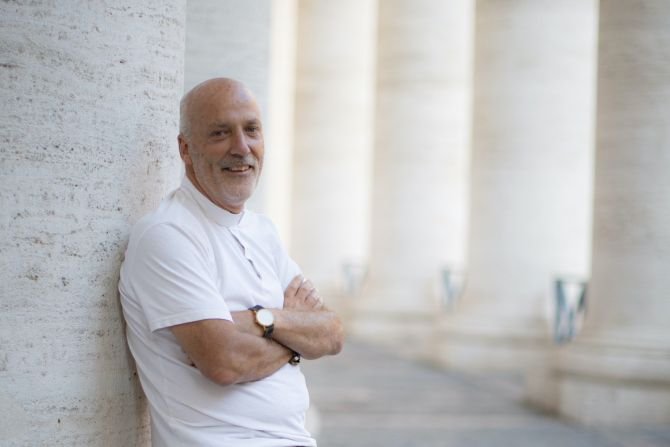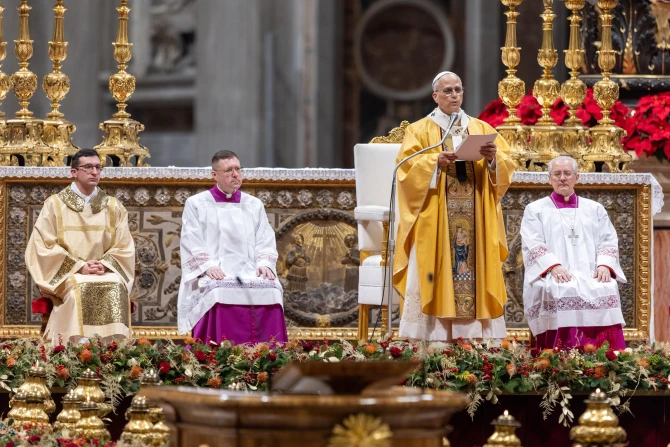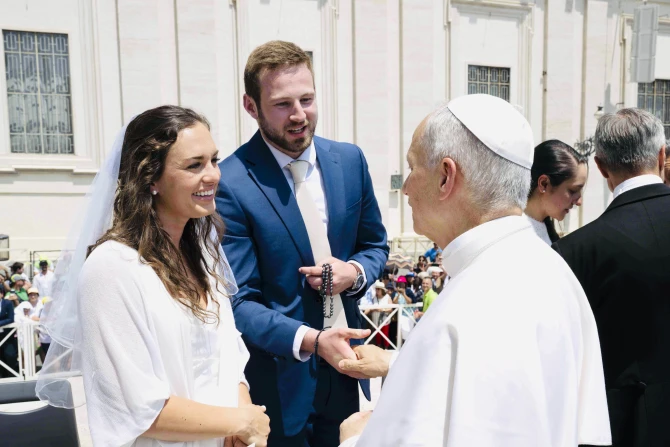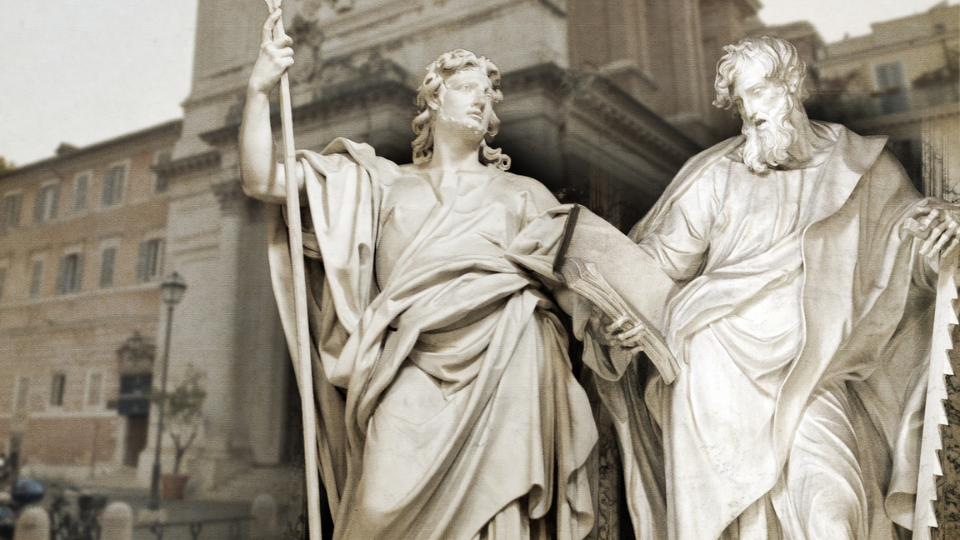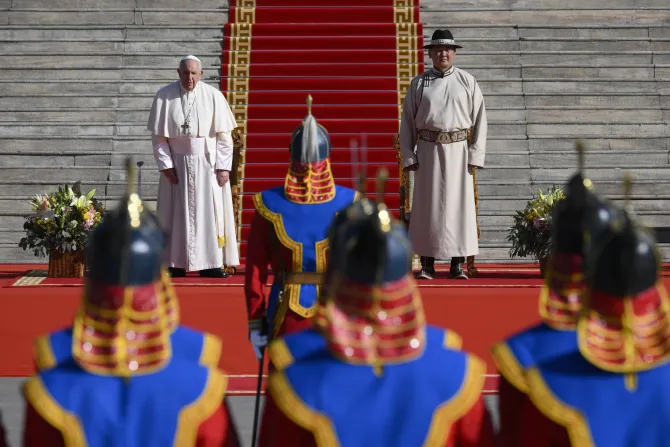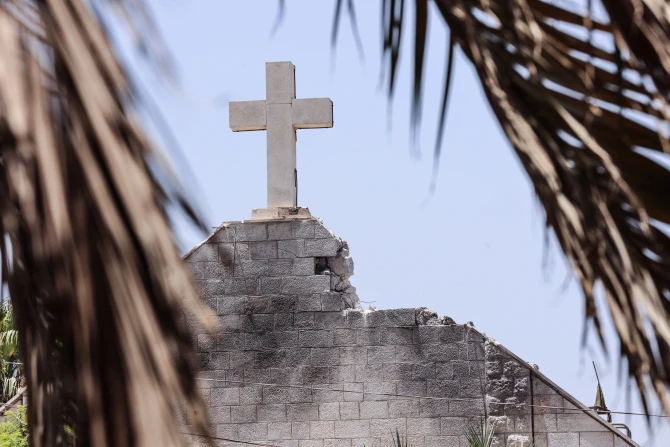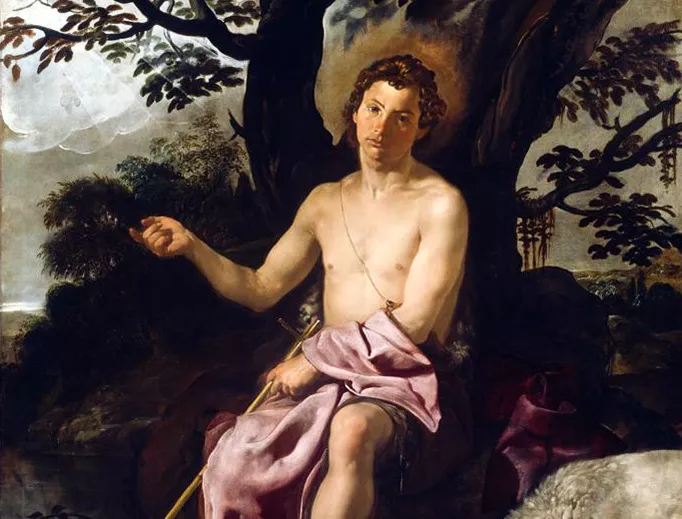After meeting with Pope Francis on Monday, September 11th, at the Vatican, Father José Pedro Manglano, the priest and founder of the “Hakuna” movement, reflects on the deep desire young people have to find meaning in their lives—a “cry of hope” reflecting the “desire for God.”
The Spanish priest, known as “Don Josepe,” affirms that he has witnessed “the conversion of many young people” and clarifies that almost none of these conversions occurred “through rational means” but rather “by seeing how we love each other” as Christians, by discovering “that Heaven begins here,” and by perceiving the “true joy of following Christ.”
With his characteristic simplicity, seated on one of the steps of the colonnade surrounding St. Peter’s Square, Don Josepe talks to ACI Prensa about what those Bernini columns represent: the Church’s embrace of all the faithful.
A Meeting to Express Gratitude
He expresses his joy at having seen Pope Francis “very healthy and very peaceful” and assures that the Pontiff even joked, appearing “calm and comfortable.”
He clarifies that the meeting was not “for work or to request or obtain things or to solve problems,” but rather it was more “the visit of a son to his father.” “This audience was above all to thank him,” explains Father José Pedro, “because a few months ago he wrote me a letter, also sent me a video greeting and encouraged me to continue with all the work. He also congratulated me on the creativity and initiatives we had.”
Father Manglano emphasizes that he wanted to thank the Pope for “these initiatives” that “helped us greatly.” “In a way, it’s expressly a confirmation. In these paths of God, where you always walk between mystery and receiving explicit confirmations from the Church and the shepherds, they are truly a gift, and I wanted to thank him for that.”
He also points out that the birth of the “Hakuna” movement coincided with the beginning of Pope Francis’ pontificate, specifically during World Youth Day in Rio de Janeiro, Brazil, in 2013. “In the meeting, I told him that we had followed the guidelines he had given: freedom, growth in freedom. That is, not religious training, but personal, free growth, becoming aware, personal searching.”
On the other hand, he underscores that one aspect of the “Hakuna” charism is openness “to everyone,” especially “to the poorest of the poor of God, that is, to those who are far away.” They seek to “accommodate them and respect each one’s search, each one’s situation, as well as the centrality of Christ, the Eucharist, and the sacraments.”
“Also contact with people who suffer,” he continues, “for whatever reason, are in a situation of poverty in any of its forms, as the Pope invites in ‘Fratelli Tutti.’ I told the Pope about the joy we feel in following the guidelines he has set forth during his pontificate, which have guided us and, thanks be to God, many people have found God again, returned to God, grown, and many commitments to give themselves to God have emerged.”
“Personal Poverty” to Allow God In
The Spanish priest also gave a book to the Holy Father, which speaks “about the spirit that feeds those whom we call ‘compartiriados,’ people who are going to be volunteers or do social action.”
“We like to call them ‘compartiriados,'” he explains, “to become aware that it’s not my goodwill that makes me do something for you, but it’s a moment in which we are all traveling together in life, and each one shares what we have.” He emphasizes that “some share health and others share illness, some darkness, and others light, some old age, and others youth.”
“That’s why we wrote a book that talks about this spirit, about how Christians should not stay with solidarity but live charity. A path that, although it has a common beginning, has different inspiration. It’s about seeking and learning in the other’s poverty, discovering each one’s spiritual poverty.”
Don Josepe told Pope Francis that the beatitude “we seek the most is to welcome the ‘poor in spirit,'” because “from that personal poverty, that awareness of personal poverty,” is where “God can enter.”
He also gave the Holy Father a CD with songs composed by “Hakuna.” He recalled that the first time they met, the Pope had made them a special request: to make the Mass “a celebration.” “His desire to want to serve with music we also wanted to reflect on this record,” he points out.
“Hakuna” Reaches More Than 30 Countries
The “Hakuna” movement has already reached more than 30 nations. “In some countries, especially in Latin America, it has grown a lot,” says Don Josepe.
“There is an office in Madrid, but also in Mexico, in eight or ten cities. In Argentina, there are several groups, but now they are starting in three or four more cities. And then in Ecuador, Chile, and Peru. In European countries, it is true that the groups are smaller, but they are present in practically all the capitals because in Paris there are two groups, one in Spanish and one in French. [Also] in Dublin, London, Bern, and Berlin.”
Currently, “Hakuna” is a private association of the faithful. When asked about a possible legal change, Don Josepe responds humbly that he has never “wanted anything.”
“I have never had an interest or intention to start anything. I have been surprised, looking back, by what God had been doing with us. And I have the practice of not looking forward but looking back and recognizing what happens.”
“There is a lot of hope.”
When talking about today’s youth, Father Josepe smiles. “I believe that the search for God, right now, is evident to all of us. And proof of this is the dissatisfaction of so many people with a flat, insignificant life.” He insists that this “dissatisfaction and desire for God is noticeable and manifested in illnesses, eating disorders, lack of self-esteem, insecurities, suicides. These are more than cries that man seeks something more, that he is not satisfied with horizontalism.”
He affirms that “they are cries of hope, cries of searching, and therefore of hope. But they also awaken us Christians to the commitment to show Life to all those people who are seeking it.”
“Heaven Begins Here”
The founder of “Hakuna” points out that “all we seek is to live; it is life. And I have often commented that, just as dogs smell fear —I don’t know if it’s true— young people smell life, and where they see true life, where there is joy, love, and peace.”
“The charisma of Hakuna we sometimes define as living the joy of following Christ. But speaking of this joy is not a triviality, but, as Mother Teresa of Calcutta said, it is a new joy. Jesus Christ said, ‘I give you peace, but not as the world gives it.’ In a way, we could also say that Christ gives joy, but not the joy that the world gives.”
“And that new joy,” he continues, “that joy that is full, that is serene, that is profound, that is full of fullness, must be lived. God is the God of life, and the path that the Christian chooses is the path of life and freedom.”
He clarifies that it is not “biological life” but “living fullness, a life that reflects the glory of God. God is present, and that is the joy: to be aware that Heaven has already begun here; Heaven has started; God’s glory is already here.”
To perceive that joy, he points out that “we need inner care, to be able to discover those flashes of God’s presence, the beauty of life, creation, our neighbor, the beauty of pain, suffering, and even the beauty of death.”
He also mentions “the beauty of friendship, commitment, the beauty of sexuality, the beauty of everything that exists in all of creation or in all human reality, because that is what is capable of filling us with joy. What do young people seek? Well, life,” he asserts.
Father Josepe says that during this time, he has seen “the conversion of many young people, and almost none of them has been by rational means, by thought, by demonstration or by convincing. Most of them have been by contact, by seeing how we love each other.”
Furthermore, he reiterates that “the Eucharist is the bread of unity, and the flavor is transfiguring in our hearts, making us capable of loving each other in a different way than the affection of this world, in a service that has no limits, an affirmation of the other that does not stop even with death, with the cross.”
For Don Josepe, “the cross is not about putting stones in your shoes, but about embracing the other in their truth. And in loving the other as they need to be loved. That’s where we find, where we discover the cross.”
He assures, in conclusion, that “discovering the presence of God in the way we love one another as Christians will clearly be the light of the world.”

